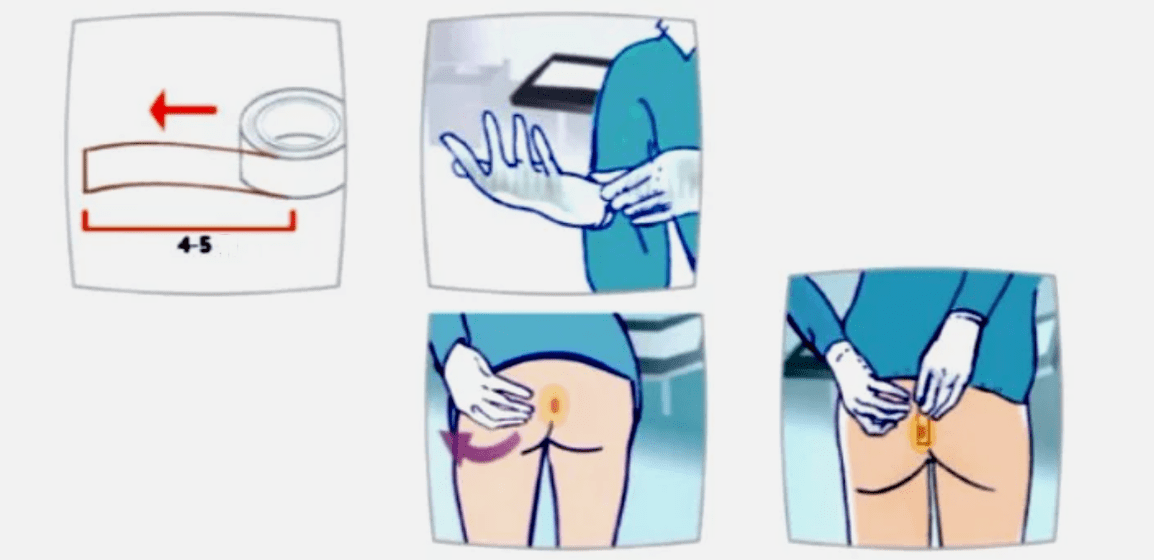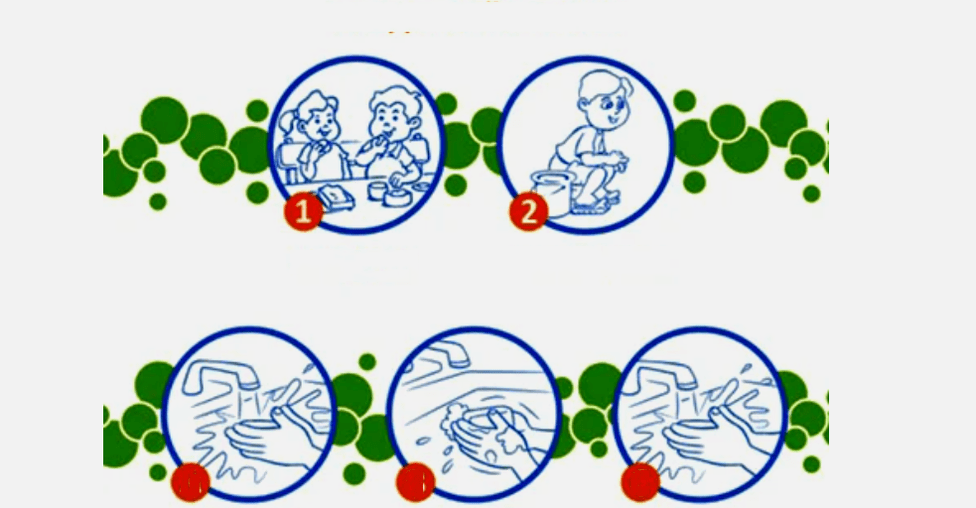
One of the well-known quotes: "In fact, parasites kill much more people than all wars in history." Surprisingly, a simple, sometimes single-celled creature that can destroy the work of large creatures.People are not in debt.Methods have been developed that allow you to identify parasite invasions at an early stage and start treatment in a timely manner.Analysis of adult parasites can be carried out in regular hospitals and private clinic laboratories.
Who are parasites and how to identify them
Parasites are numerous creatures that can survive only because of the owner's resources.They cannot live alone.Parasites in the human body are fixed on the skin (worms, ticks), gastrointestinal tract (Ascarides, Pinworms).In the intestine, it is the most favorable environment for important parasite activities.In the lymphatic vessels (filiria), there are also some organs, the mucosa of internal organs (Trematoda).To gain a foothold in the host, worms and protozoa use suction cups, hooks, clothespins, several protein plates or hard hair.
Modern laboratory diagnostic methods can be used to determine the presence of parasites in the human body and its colonies.What tests should be performed on adults:
- Histological study of feces.
- Serological studies (blood test): immunosorbent assay (ELISU), indirect hemagglutination reaction (RNG), immunofluorescence reaction (coral reef or KUNS method), preservative binding reaction.
- PCR analysis.
In general, diagnosis is difficult because not all parasites have characteristic clinical manifestations and not all methods are equally sensitive.The subject doctor will say what the name of the analysis needs to be taken.A comprehensive analysis of parasites is usually recommended.
What are the dangers of parasites
Parasitic invasion greatly depletes human immunity.Immunity is one of the components of the body's regulatory system.Have immunodeficiency:
Beware
According to statistics, more than 1 billion people have been infected with parasites.You don't even suspect that you have become a victim of parasites.
It is easy to determine the presence of parasites in the body through one symptom - the odor in the mouth is unpleasant.Ask your loved one if he has a mouth in the morning (before brushing his teeth).If so, the probability is 99%, and you will get parasites.
Parasitic infections can lead to neurosis, rapid fatigue, rapid changes in mood, and more serious diseases begin to further.
In a manParasite causes: prostatitis, yang ot, adenoma, cystitis, sand, kidney stones and bladder.
Among women: Pain and inflammation of the ovaries.Fibroids, fibroids, fibroids - acidic breast disease, inflammation of the adrenal glands, bladder and kidneys are developing.and heart and cancer.
We immediately want to warn you don’t need to go to the pharmacy to buy expensive drugs, which according to the pharmacist, etch all the parasites.Most drugs are very ineffective, and in addition, they cause great harm to the body:
- Increased risk of viral infection;
- Levels of antioxidants and anticancer protective agents have been reduced;
- The permeability and failure of blood vessels that cause hematopoiesis are violated.
Parasites can cause severe allergic reactions.
The helmsman also has a direct destructive effect.They are attached to internal organs with sharp hooks or plates that mechanically damage the mucous membrane.The normal work of the affected body is violated.
Worm activity damages the body at the molecular level.The rate of insulin synthesis, growth factors and collagen is reduced.This leads to a slowdown in the growth and physical development process.The absorption in the small intestine is also reduced.Parasitic infection is characterized by a small chronic blood loss in the affected organs.
Recent scientific research has shown that worms in the intestine distinguish specific toxins that inhibit cytokine activity.These are the information molecules that regulate cell-to-cell contact.They provide cellular information about the external environment.If there is free space, the cells can begin to divide.Blocking the work of cytokines can lead to tumor formation.Cytokines also provide an agreed response to the effects of immune, neural and hormone systems on foreign drugs.
Provide reasons for parasite analysis
When a single parasite is infected, a person may not experience any symptoms.But as time goes by, the number of worms increases and the infection begins to show itself.If symptoms exist such as different localized abdominal pain that can be spontaneously or palpated, the parasite must be tested.
The nature of the symptoms depends on the type of parasite.Itching and burning in the anal area causes pinworms.Askarides can cause severe allergic reactions and squeeze abdominal pain.Lambia, echinococci and Bicondumure affect the liver.They are often the cause of biliary tract and cholestasis (bladder), inflammation of the gallbladder.Fat drops Fat is one of the main signs of liver and pancreatic pathology.The symptoms of parasitic effects on the liver and gallbladder are pain in the lower right corner.
If some listed symptoms appear, it is necessary to go to the hospital to identify the internal parasites in time.It is necessary to conduct regular preventive testing on children, people who live or work with animals.If you eat foods with raw, aerobic, slightly salty meat, lard or fish, the risk of infection is high.In this case, regular inspections must also be carried out to identify parasites.
Detailed tandem diagram
Histological profiles are microscopic studies of feces to detect eggs, larvae or traces of parasitic adults that are vital to active eggs, larvae or traces.Detailed analysis of feces is a general method for detecting intestinal worms (Pinworms, asscaris, Ankylost, Plum -ehead).
How to perform fecal analysis.You need to buy a special sterile container at the pharmacy.It is filled with one third of the feces.Before defecation, it is necessary to urinate so that the urine does not fall into the sample.The lid filled with containers is tightly twisted.
Biomaterials can be stored in the refrigerator for no more than 8 hours and are no longer suitable for research thereafter.A week before the analysis, you need to stop taking any medications and exclude fried and fatty dishes.On the eve of the material fence, you can’t place rectal candles, drink laxatives, or make enemas.
The main disadvantage of mutual graphs is inefficiency (about 35%).The helmsman does not lay eggs every day.Therefore, three parasite fecal analysis must be performed at intervals of 3-5 days.Disordered results are usually obtained 4-6 days after delivery.
Scratch the parasite

Scratches or smears from the anal area are only used to diagnose enteropathy (Pinworms).The smear is performed in two ways:
- Use special scrapers or cotton wool;
- With tape.
Scrapers can be purchased in the pharmacy.Remove the smear on the anus and crot feet.The procedure can be performed at home or in the clinic.The fence of the material is done in the morning and then you can't wash or enema.If the scraping is done at home, the scraper must be placed in an airtight container or bag and delivered to the lab on the same day.The results of the analysis can be obtained tomorrow.For accurate diagnosis, parasite analysis must be performed several consecutive times.
Blood test
You can donate blood on the parasite.This is a common object of laboratory research.By changing its composition, the pathology in the body can be judged.How to identify parasites, check blood, and what tests were donated?Immunosorbent analysis was performed on the reactions of antibodies and antigens, indirect hemagglutination and immunofluorescence.In general blood tests, eosinophil levels increase in the presence of parasitic infections in the body.
Elisa
Immuno-normal analysis (ELISA) allows you to determine the presence and concentration of immunoglobulins (antibodies) in the blood that are produced in response to the invasion of foreign drugs (antigens).IFA analysis is a highly sensitive method that allows you to recognize antigens even in small quantities.With its help, you can accurately determine the type of parasite, the number of colonies, and the stage of development of the process.
According to five types of antibodies, the ELISA of parasites in the human body is decrypted.To diagnose worm invasion, only three classes of immunoglobulin have sufficient immunoglobulin:
- Immunoglobulin M (IGM).They are produced 4 days after infection and last in the blood for 6 weeks.The presence of IgM indicates a large reproduction of foreign agents.
- Immunoglobulin G (IgG).They enter the blood 20-28 days after infection and may exist for months or years.The presence of IgG indicates infection.
- Immunoglobulin A (IgA).They are produced after two weeks of infiltration of pathogenic organisms and disappear after 5-8 weeks.The presence of IgA indicates infection or the body cleanses itself.
Blood samples passed through ELISA on an empty stomach in the morning.
RNA
The indirect hemoclotting reaction is the most specific and sensitive reaction of all serological methods.The response of red blood cells to various antigen effects is being studied.Assess the nature and intensity of red blood cell precipitation.With a high and violent reaction, the bottom of the tube is covered with sticky red blood cells.The results of the analysis were decrypted by the attending physician.
RNIF
The indirect response of immunofluorescence allows you to recognize antigen-antigen-regulated complexes.To this end, blood samples were treated with a special serum for immunoglobulin containing a composition of fluorescein.Afterwards, the samples were studied under a fluorescence microscope.
The results were evaluated by the intensity of yellow-green luminescence.High titer indicates the presence of worm invasion.The attending physician participated in decoding the analysis results.
RSK
Antibodies with corresponding antigens are formed from immune complexes that can contact the complement system.This is based on the RSK method (complement binding reaction).If no antigen-antibody complex is formed, complement remains free.
RSK is used to diagnose the acute phase of parasitic diseases.
Diagnosis by PCR
Polymerase chain reaction is a modern and high-precision research method.With its help, you can diagnose the presence of viruses, bacteria, protozoa, and intracellular parasites in your body.For analysis, blood and other biological fluids are suitable.
The result of the polymerase chain reaction is the decrypted DNA of the parasite.You can accurately determine the type of pathogen.The disadvantage of PCR is that the number of parasites and the stage of disease development cannot be found.

in conclusion
Identification analysis of each person must be carried out.Regular checkups will help avoid huge health problems that can cause these small animals.Doctors will say which analysis method is best to choose.

















































